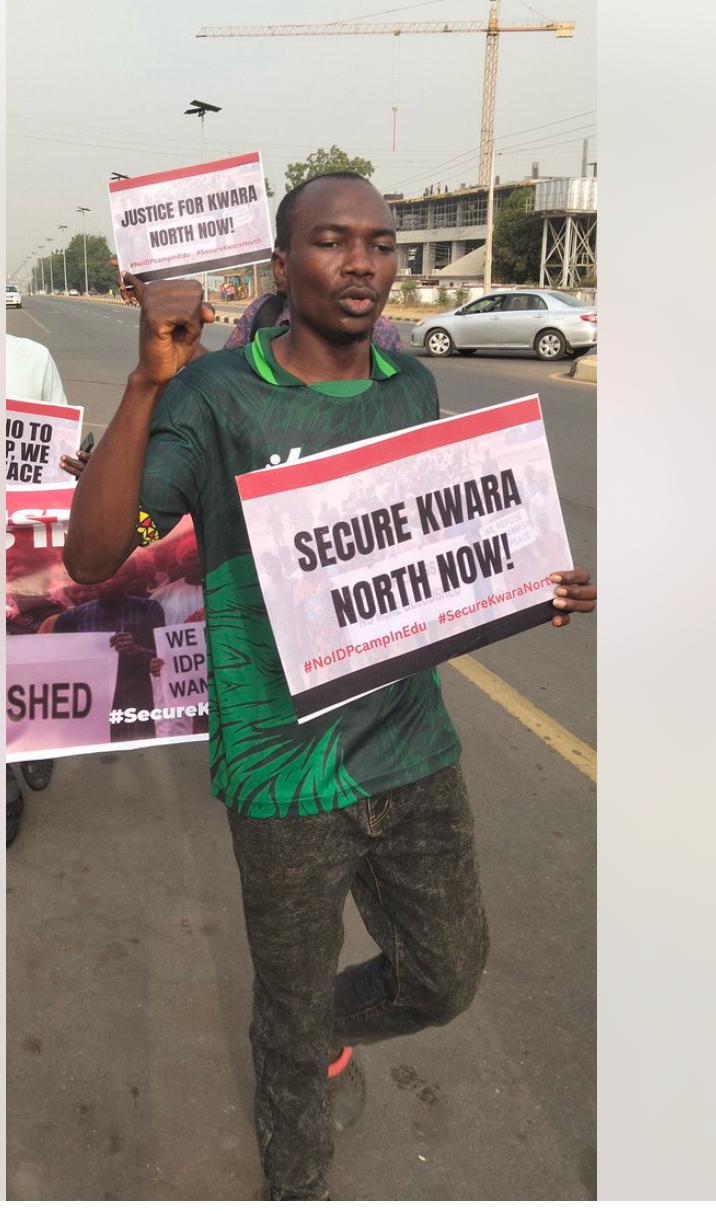Exploring solutions to security challenges In Benue

By Bridget Tikyaa
The security situation in Benue State has been quite challenging, particularly with regards to the herders-farmers conflict, banditry, kidnapping, gansterism, and cult violence.
Since assuming office, Governor Alia has prioritized security, a long-standing challenge in Benue, which has significantly improved under his watch, with efforts to curb clashes between farmers and herders yielding positive results.
Before now, the state has experienced a significant decline in farming activities due to the activities of bandits and terrorists, who attacked farming communities, abducted, and killed several farmers and dislocated many communities.
In fact, the Commissioner for Agriculture and Food Security in Benue State, Professor Moses Ogbaji, noted that the criminal activities of bandits before now had severely impacted food security in the state and the country, as many farmers were unable to return to their farms due to fear of attacks.
To address these security challenges, the Benue State government under Gov Alia has established the Benue State Civil Protection Guards, which aims to complement the conventional security agencies and ensure the safety of communities and farmers. The government has also provided agricultural inputs, training, and resources to support farming communities and promote sustainable farming techniques.
Despite these efforts, the security situation in Benue State remains a significant concern, and ongoing efforts are being put in place to address the root causes of the conflicts and ensure the safety and well-being of farmers and communities.
It was in line with this effort that the Benue Public Service Institute (BPSI) organised a 3-day conference with the theme “Ensuring Safety and Security of Benue State: Collaboration, Innovation and Preparedness”, to advance the search for peace in the state.
According to the Director-General of the institute, Prof. Terkura Tarnande, the homeland security conference, was to explore non-kinetic solutions to the insecurity bedevilling the state.
He said that having operationalised the anti-open grazing law, empowered regular security agencies to carry out their functions, created the Benue State Civil Protection Guards and Operation Anyam Nyor to curb insecurity, it is time to explore non combative approach to solving the problem. The conference is to suggest ways that the challenges will be resolved without the use of arms.
This was well explained by Dr Mark Nyitse, BPSI Director of Research and Publications and Chairman, Organising Committee of the conference.
“We have brought together experts, policymakers, and stakeholders from various fields to share knowledge, experiences, and best practices in homeland security.
“We will explore strategies for enhancing collaboration among security agencies, leveraging innovation and technology to stay ahead of threats, and building preparedness to respond to emergencies.
“Over the next few days, we will engage in robust discussions, share experiences, and explore innovative solutions to enhance security in Benue. We will examine the root causes of insecurity, assess our current security architecture, and identify areas for improvement. We will also explore strategies for strengthening our security agencies, enhancing community policing, and promoting inter-agency collaboration,” he said.
Nyitse said that the conference would discuss the role of technology in homeland security, including the use of surveillance systems, intelligence gathering, and cybersecurity, and make tangible suggestions to government on effective solutions to ensure the safety of all.
His Royal Majesty, Prof. James Ayatse, the Tor Tiv, also backed the adoption of non-kinetic solutions to the crisis, including massive repatriation of displaced persons back to their homes.
The Tor Tiv, who was represented by Chief Moses Anagende, the Tor Lobi, appreciated the institute for championing the non-kinetic approach to the security challenges in Benue State.
This effort has aligned perfectly with the vision of Governor Hyacinth Iormem Alia’s administration of protecting the lives and property of all residents of Benue State.
Alia, who was represented by his Deputy Sam Ode, said the government has made the security of lives in the state a topmost priority and is taking targeted efforts that will address key concerns.
He, however, raised other issues he wants the egg heads to explore. These are the contributions of climate change and illegal mining to the security challenges in the state. The governor noted that as the desert expands and resources like water and grazing fields shrink, herders will continue to migrate.
“We must find ways to implement anti-grazing laws in a manner that reduces the loss of lives. The life of one citizen is as important as 100 lives. We must also check the trends of criminal elements masquerading as herders.
“The discovery of solid mineral resources in many areas is leading to situations similar to those in Zamfara. We must confront that situation. If we don’t do so, what has been happening in Zamfara may happen here, too, particularly in areas with fertile land and valuable resources.”
The conference featured insightful presentations from distinguished experts in the field of homeland security. Brigadier General J.T. Aun, Deputy Vice Chancellor (Military) of the Nigerian Army University, Biu, Borno State, delivered the keynote paper on “Inter-Agency Collaboration, Innovation and Incorporation of Community Action Against National Insecurity in Nigeria.” He highlighted the evolving nature of security threats and stressed the importance of joint efforts among military forces, law enforcement, and civilian populations to maintain peace and order noting that Benue being in the North Central region, what affects it affects the whole country.
Barrister Elizabeth Ibu Yakubu, Manager of Security Strategy and Assurance at Shell Petroleum Development Company, who spoke on the topic “Human Trafficking and Its Impact on Benue State Development” decried the spate of human trafficking involving women and girls blaming the development on poverty and lack of economic opportunities, conflict and displacement, Corruption and weak law enforcement, and High demand for cheap labor and exploitation. Her presentation underscored the need for community awareness, formal education, economic
development initiatives, and multi-stakeholder collaboration as solutions.
Joseph Terwase Har, the Special Adviser on Security to the Governor of Benue State, presented a paper on “Ensuring the safety and security of Benue State through awareness campaigns and cordial relationship.” His paper identified herders intrusion on farm land, cattle rustling, arms proliferation, illegal mining, land grabbing, and the ‘get-rich quick’ mentality as some of the common factors triggering insecurity.
The lead paper presenter, Air Commodore Jacob Gbamwuan (Rtd) Director General ,Homeland Security, stressed the need for preparedness, community involvement, and the proactive role of both governmental and non governmental organizations in addressing emerging security challenges, etc.
The event attracted a diverse group of attendees, including members of the military and paramilitary, academic institutions, captains of industry, heads of government agencies, nongovernmental organizations, traditional rulers, students, and members of the public. The multistakeholder engagement was a testament to the broad recognition of the need for a comprehensive approach to security in Benue State.
It is imperative to adopt a multi-faceted approach involving government agencies, traditional leaders, community organizations, and individuals in addressing the security issues in the state.
There should be a workable roadmap for the establishment of ranches in designated areas to reduce the conflict between herders and farmers, ways to enhance community policing to build trust between the police and local communities, thereby allowing for early detection and prevention of security threats, and prioritising intelligence gathering to prevent attacks and kidnapping.
Most importantly, measures should be taken to provide alternative livelihoods for herders and farmers to reduce the conflict between them, empower youths through education, skills acquisition, and job creation, and encourage dialogue and mediation to resolve conflicts peacefully.
Bridget Tikyaa is the Principal Special Assistant to the Governor on Media, Publicity and Communications Strategy










